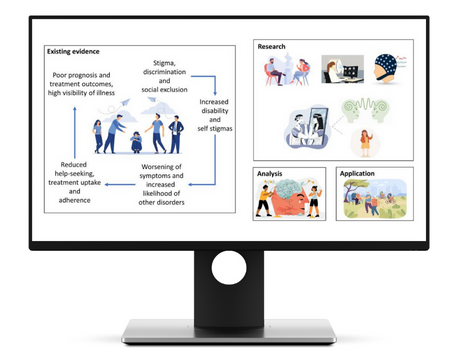Scientific Highlights
– Costa, P., Magalhães, E., & Costa, M. J. (2013). A latent growth model suggests that empathy of medical students does not decline over time.Advances in Health Sciences Education, 18(3), 509-522.
– Costa, P. S.*, Santos, N. C.*, Cunha, P., Cotter, J., & Sousa, N. (2013). The use of multiple correspondence analysis to explore associations between categories of qualitative variables in healthy ageing. Journal of aging research,2013.
– Costa, P., de Carvalho-Filho, M. A., Schweller, M., Thiemann, P., Salgueira, A., Benson, J., … & Quince, T. (2017). Measuring medical students’ empathy: exploring the underlying constructs of and associations between two widely used self-report instruments in five countries. Academic Medicine, 92(6), 860-867.
– Moreira PS, Sotiropoulos I, Silva J, Takashima A, Sousa N, Leite-Almeida H, Costa PS (2016). The advantages of Structural Equation Modelling to address the complexity of spatial reference learning. Front Behav Neurosci, 10:18.
– Pinto, P. R., Mcintyre, T., Araújo-Soares, V., Almeida, A., & Costa, P. (2018). Psychological factors predict an unfavorable pain trajectory after hysterectomy: a prospective cohort study on chronic postsurgical pain. Pain, 159(5), 956-967.
– Padilha, J. M., Machado, P. P., Ribeiro, A., Ramos, J., & Costa, P. (2019). Clinical Virtual Simulation in Nursing Education: Randomized Controlled Trial. Journal of medical Internet research, 21(3), e11529.
– Ferreira da Silva, F., & Costa, P. (2019). Do we need warm leaders? Exploratory study of the role of voter evaluations of leaders’ traits on turnout in seven European countries. European Journal of Political Research, 58(1), 117-140.
– Barbosa, F., Delerue Matos, A., Voss, G., & Costa, P. (2021). Spousal Care and Pain Among the Population Aged 65 Years and Older: A European Analysis. Frontiers in medicine, 8, 602276. https://doi.org/10.3389/fmed.2021.602276













